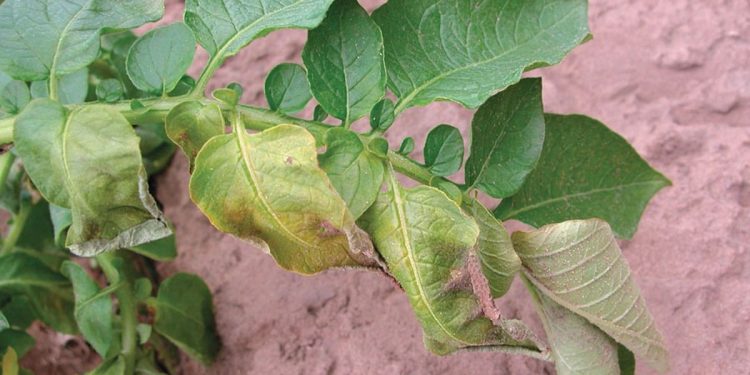#PotatoFarming #AgriculturalInnovation #CropDiseaseDetection #MachineLearningInAgriculture #SustainableFarming #ColombianAgriculture #Geomatics #PrecisionFarming #CropHealthMonitoring #FarmTech
Potato farmers in Colombia are on the brink of a technological revolution, thanks to an innovative algorithm developed by William Alfonso León Rueda and a team of experts from the Faculty of Agricultural Sciences at the University National of Colombia (UNAL) Sede Bogotá. The algorithm, designed to identify early blight in potato crops, has the potential to reshape the landscape of disease detection in agriculture.
Detecting the Unseen:
Early blight, caused by the Verticillium fungus, poses a significant threat to potato crops, damaging leaves, hindering water and nutrient flow, and impacting overall potato quality. Farmers often struggle to identify the disease promptly. León Rueda’s team, leveraging geomatics expertise, explored algorithms with a remarkable 90% reliability in early blight detection using spectral variables as predictors.
Innovative Technology at Work:
The project, conducted in Mosquera and Subachoque, implemented cutting-edge technology, including drone imagery, multispectral cameras capturing light spectra imperceptible to the human eye, and a fixed spectroradiometer. Machine learning algorithms were employed to analyze the disease’s behavior, achieving unprecedented levels of detail with a resolution of 2.8 cm per pixel.
Timely Intervention:
León Rueda highlights the algorithm’s ability to identify the fungus in short time intervals, a stark contrast to the challenges faced by technical personnel responsible for crop health monitoring. In controlled environments, the algorithm demonstrated up to 90% effectiveness, utilizing a spectroradiometer to capture the crop’s spectral fingerprint, enabling the determination of disease occurrence and progression in each plant.
Field Precision:
The research, led by professors Joaquín Guillermo Ramírez Gil and Sandra Gómez Caro, reached an exceptional level of detail. With a precision of up to 80% in the field, the algorithm’s effectiveness remained unprecedented. The use of algorithms like “Random Forests,” “Support Vector Machines,” “Neural Networks,” and “Adaboost” showcased consistent results, feeding on data from drones, multispectral cameras, and the spectroradiometer.
Challenges and Collaborations:
León Rueda acknowledges the need for further refinement, addressing concerns such as potential confusion with other crop diseases and ensuring representative crop samples. The research, part of a broader collaboration with the Federación Colombiana de Productores de Papa (Fedepapa) and the Fondo Nacional de Fomento de la Papa (FNFP), signals a promising future for sustainable potato farming.
The development of this advanced algorithm marks a significant leap forward in the fight against early blight in potato crops. With its high precision and timely detection capabilities, farmers now have a powerful tool to safeguard their yields. The collaboration between academia and agricultural organizations showcases the potential of technology to revolutionize farming practices, paving the way for a more sustainable and efficient future in agriculture.







